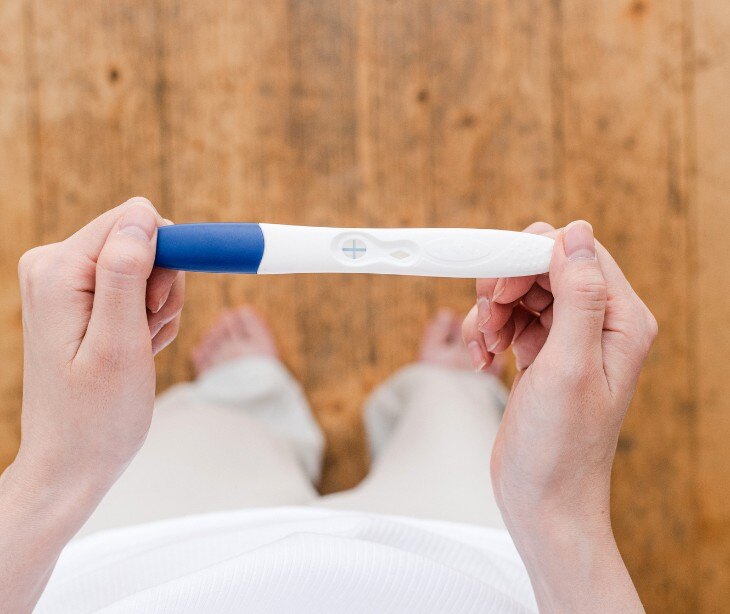3 min read
HIPAA compliant email for organizational crisis communication
Farah Amod
December 09, 2024

For healthcare organizations, maintaining HIPAA compliance in crisis communication is not just a regulatory requirement but a commitment to patient privacy and trust. With the right tools and protocols, organizations can ensure that their communications during emergencies uphold the high standards of privacy and security that patients expect, even under challenging circumstances.
Understanding crisis communication
Stephen Moossajee, CISSP, explains the importance of effective crisis communication: "At the heart of effective crisis communication lies the ability to define the crisis accurately… Gathering reliable information, assessing risks, and constructing a coherent narrative are foundational steps." This approach, he notes, helps leaders fully understand the challenge and identify the right audiences and messages. “Collaborating with internal teams and external partners is vital for seamless coordination,” he adds, pointing to the need for unified efforts.
For executive leaders, Moossajee describes crisis communication as a must-have skill. “By defining crises, choosing appropriate channels, engaging empathetically, adapting to changes, collaborating effectively, and learning from challenges, you can navigate even the toughest situations,” he says. Following these insights, he believes, strengthens crisis communication strategies, helping to protect an organization’s reputation and maintain trust with stakeholders.
Why HIPAA compliance matters in crisis communication
HIPAA’s privacy and security rules mandate that protected health information (PHI) be safeguarded, even during emergencies. In moments of crisis, an organization’s focus on secure, compliant communication prevents additional risks, such as unauthorized disclosures or data breaches, which can worsen an already challenging situation. HIPAA compliant email allows healthcare organizations to:
- Secure PHI: During crises, sensitive information such as patient health data, affected systems, and response plans may be shared. Secure email helps protect this data with encryption, ensuring it remains confidential.
- Avoid legal penalties: Violating HIPAA, even during a crisis, can result in fines and legal consequences, adding to the organization’s burdens.
- Maintain patient trust: Transparent and secure communication fosters trust among patients and stakeholders, especially when reassuring them about ongoing actions to protect their data and health services.
For instance, during the COVID-19 pandemic, healthcare organizations had to communicate with patients about safety protocols, service changes, and telehealth options while safeguarding sensitive health information. HIPAA compliant email became a beneficial tool to manage these communications effectively and securely.
Read also: Does HIPAA apply in emergencies?
Benefits of HIPAA compliant email in organizational crisis communication
- Swift coordination: Crises demand quick response times, and email enables organizations to deliver important updates to a large group of recipients at once. HIPAA compliant email services like Paubox facilitate secure, encrypted communication without compromising speed, making it easier to mobilize staff and share information instantly.
- Broad reach for timely updates: Emails can be sent to patients, staff, and stakeholders simultaneously, allowing the organization to keep everyone informed. A broad reach is especially necessary for public health emergencies or security breaches where timely information can reduce risk and prevent further harm.
- Documented communication trail: Emails create a documented history of communications, which can be important for post-crisis analysis and compliance audits. According to a study on Crisis Communication In Healthcare, organizations that maintained thorough records of crisis communication were better able to identify improvement areas and comply with regulatory investigations after the crisis.
- Enhanced patient and staff reassurance: For patients and employees, knowing that communications are managed securely during crises can alleviate concerns about privacy and data security. Clear, HIPAA compliant email updates can reassure individuals that the organization is prioritizing both their safety and privacy.
Best practices for using HIPAA compliant email in crisis communication
To effectively use HIPAA compliant email in times of crisis, healthcare organizations can adopt the following practices:
- Choose a HIPAA compliant email provider: Not all email providers are HIPAA compliant. Platforms like Paubox offer secure, encrypted email services that meet HIPAA requirements. These providers use encryption and security protocols to ensure emails are protected from unauthorized access.
- Designate crisis communication teams: Having a specific team responsible for crisis communication ensures messages are clear, consistent, and compliant. This team can be trained to handle the technical aspects of HIPAA compliant email, ensuring all communications align with privacy regulations and organizational standards.
- Use templates for fast deployment: Pre-approved email templates can speed up communication during a crisis. Templates should cover different scenarios (e.g., data breach, service disruption) and be reviewed for HIPAA compliance before use.
- Implement Multi-Factor Authentication (MFA): MFA adds an extra layer of security to email accounts, ensuring only authorized personnel can access the account.
- Limit PHI Sharing: Although email is secure, it’s best to minimize the inclusion of PHI unless necessary.
Learn more: HIPAA Compliant Email: The Definitive Guide
FAQs
Does HIPAA apply during natural disasters?
Yes, HIPAA remains in effect during natural disasters. However, the Department of Health and Human Services (HHS) can temporarily waive certain provisions during declared public health emergencies, enabling providers to share PHI for treatment, public health, law enforcement, and involving family and friends in patient care.
Can patients initiate contact with healthcare providers via HIPAA compliant email?
Yes, HIPAA compliant email platforms often allow patients to initiate contact with their healthcare providers securely. Patients can send messages regarding appointment scheduling, medication refills, questions about their health, or other healthcare-related inquiries. Healthcare providers can then respond to these messages while ensuring the security and privacy of patient information.
Can I include attachments containing PHI in HIPAA compliant email?
HIPAA compliant email platforms allow for the secure transmission of attachments containing PHI. However, it's n to encrypt the attachments and ensure that access controls are in place to restrict unauthorized access to sensitive information.
Subscribe to Paubox Weekly
Every Friday we'll bring you the most important news from Paubox. Our aim is to make you smarter, faster.



